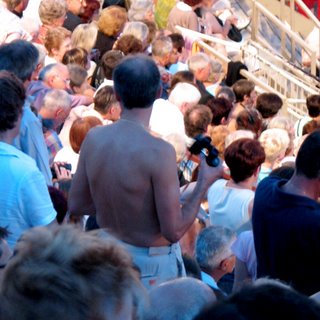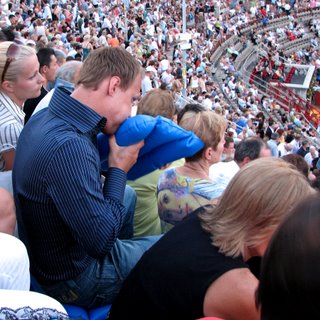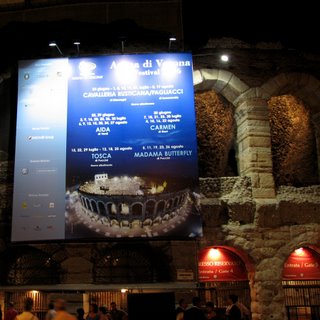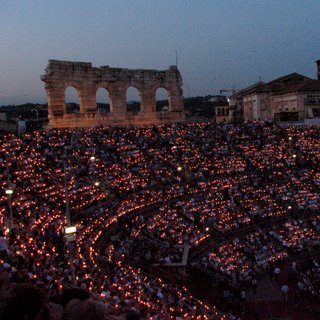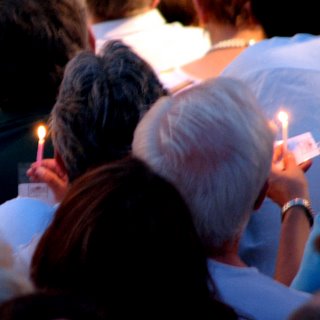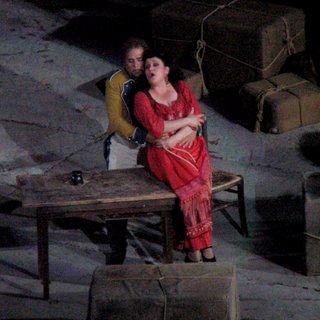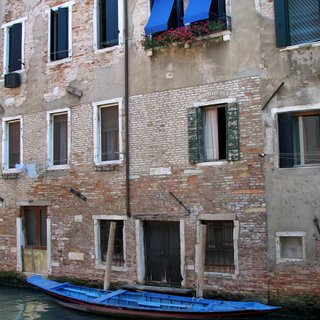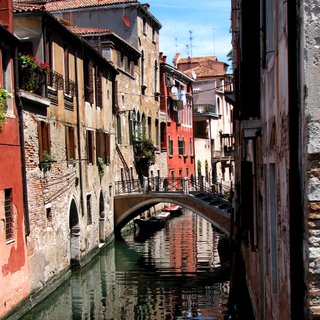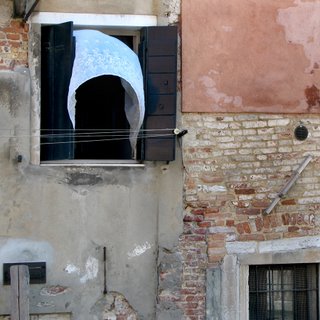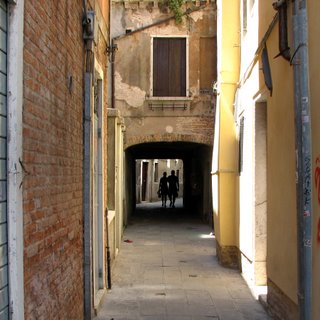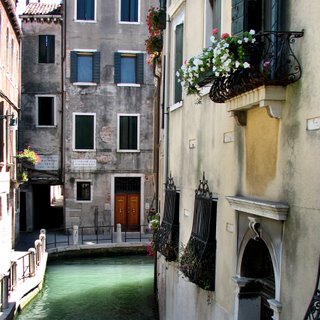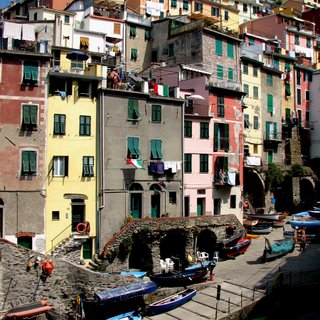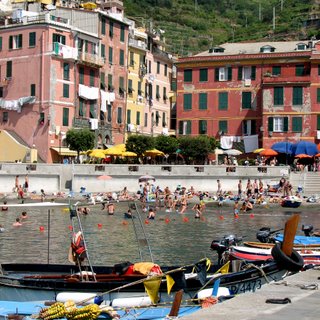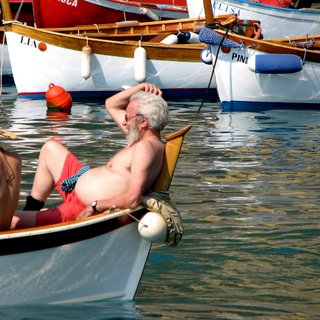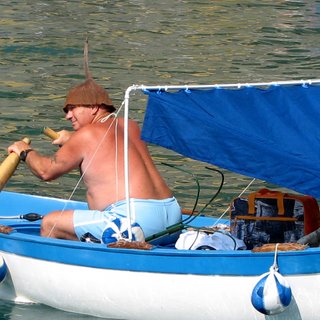
While wandering around Mantova yesterday - this was after our 2 hour train ride became a surprise 2.5 hour combination train AND bus ride without notice - we did our best not to be run over by the locals. They are fiends for bicycles and can't seem to get enough of them on the streets. All at once. The other product for which they are ecstatically gung-ho is apparently fresh milk. Yes, fresh milk. So much so, in fact, that they have a machine in the center of town that dispenses fresh milk whenever one desires.
This milk comes straight from the source, with very little time between milking and vending. It has neither been pasteurized nor anywhere near the technology that turns virgin milk into its skinnier cousins "skim" and "low fat." We happened to meet the farmer who runs this tiny operation and he explained something about being sure that the cow is very clean as it's milked. It's one of those ideas that you don't want to think about too hard or you'll stop wanting to try the very fresh milk.

The very nice, hearty farmer said that he fills up the machine several times a day and that farming has been in his family for a very long time. He also told us how large his farm is but the combination of the Italian language and my complete lack of clarity when it comes to European measures of distance has left me with only the understanding that it is a sizeable farm. Maybe a big size. Maybe a medium. But it is definitely a size.

Apparently he's had the machine set up for a little under a year and of late he's been averaging 100 bottles sold daily. He also said that at night when people are buying milk after a fun night on the town, sometimes he'll hang around the machine and offer the addition of mint to the milk. He highly recommended this flavor combination and mentioned that he also has big plans for the Christmas season.
The process for procuring your very own bottle of fresh milk is very simple. First, you put euro 20 cents in the machine that vends the clear plastic bottles. There's a sign on the machine saying you shouldn't reuse the bottles and so it seems you have to do this every time you come to the milk machine.

You then put 1 euro into the milk machine itself and place the empty plastic bottle under the interior spigot. The farmer said its best to tilt it like you would a beer in order to avoid problems with the foamy head. There was also a sign with a graphic indicating the same suggestion.

And then you're done! After filling up the bottle you have yourself a heaping helping of fresh creamy milk. It was sweet and delicious and not too heavy, and refreshingly cold on a hot summer day. It didn't hurt that there's a pastry shop across the street where you can find sweet local specialties. And what good is a creamy bottle of fresh cold milk without a couple of local specialties to go along with it?

